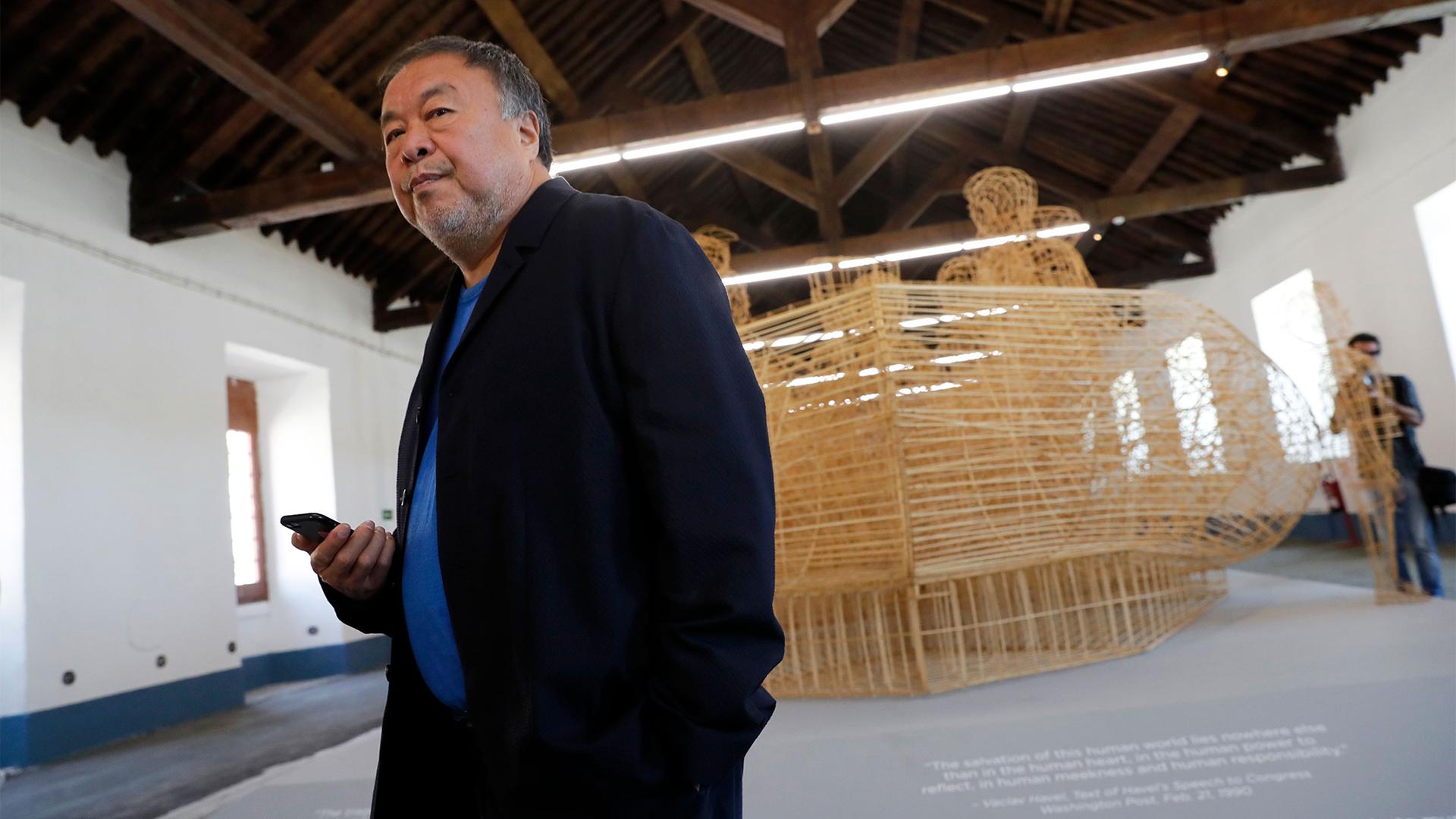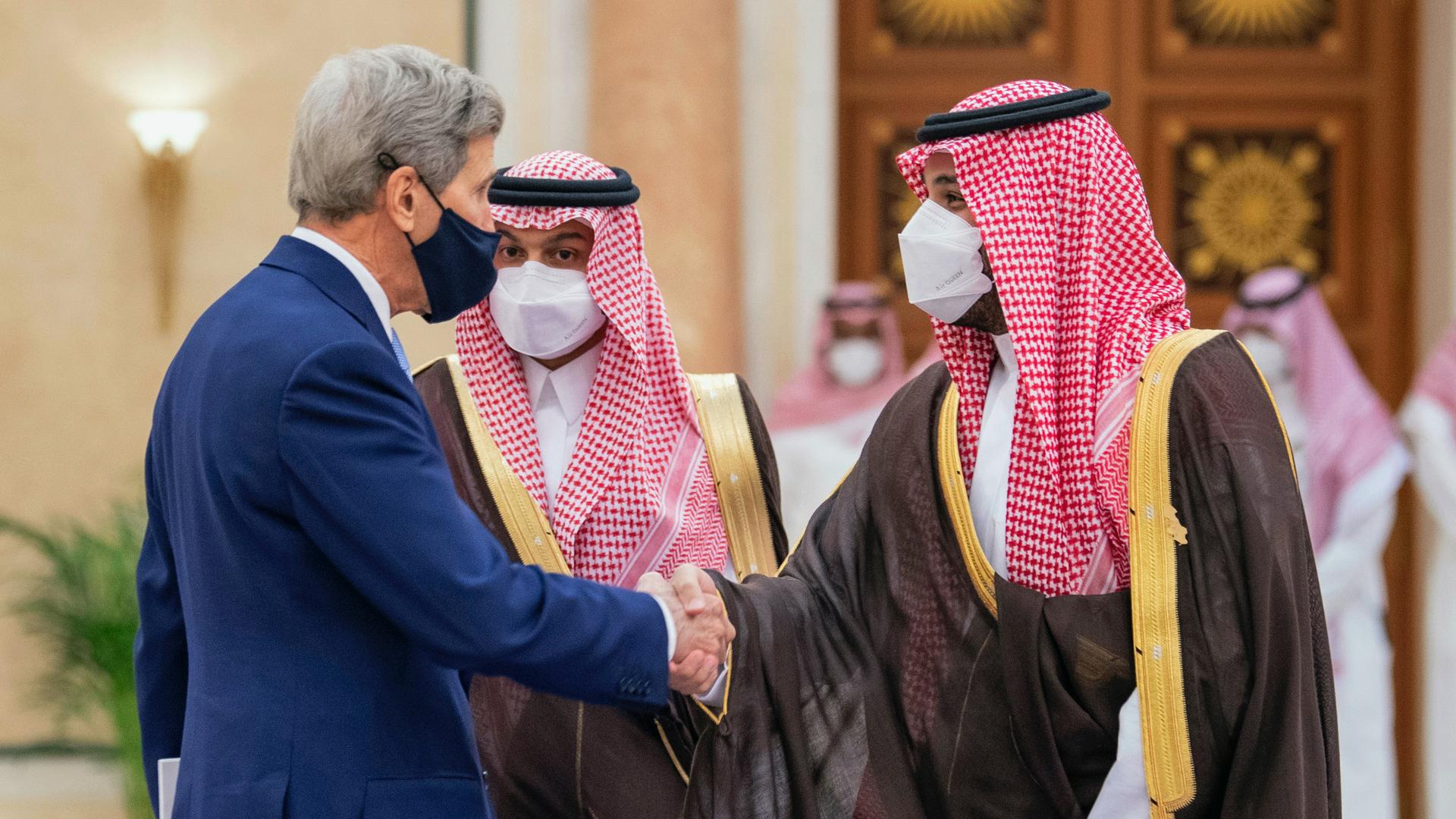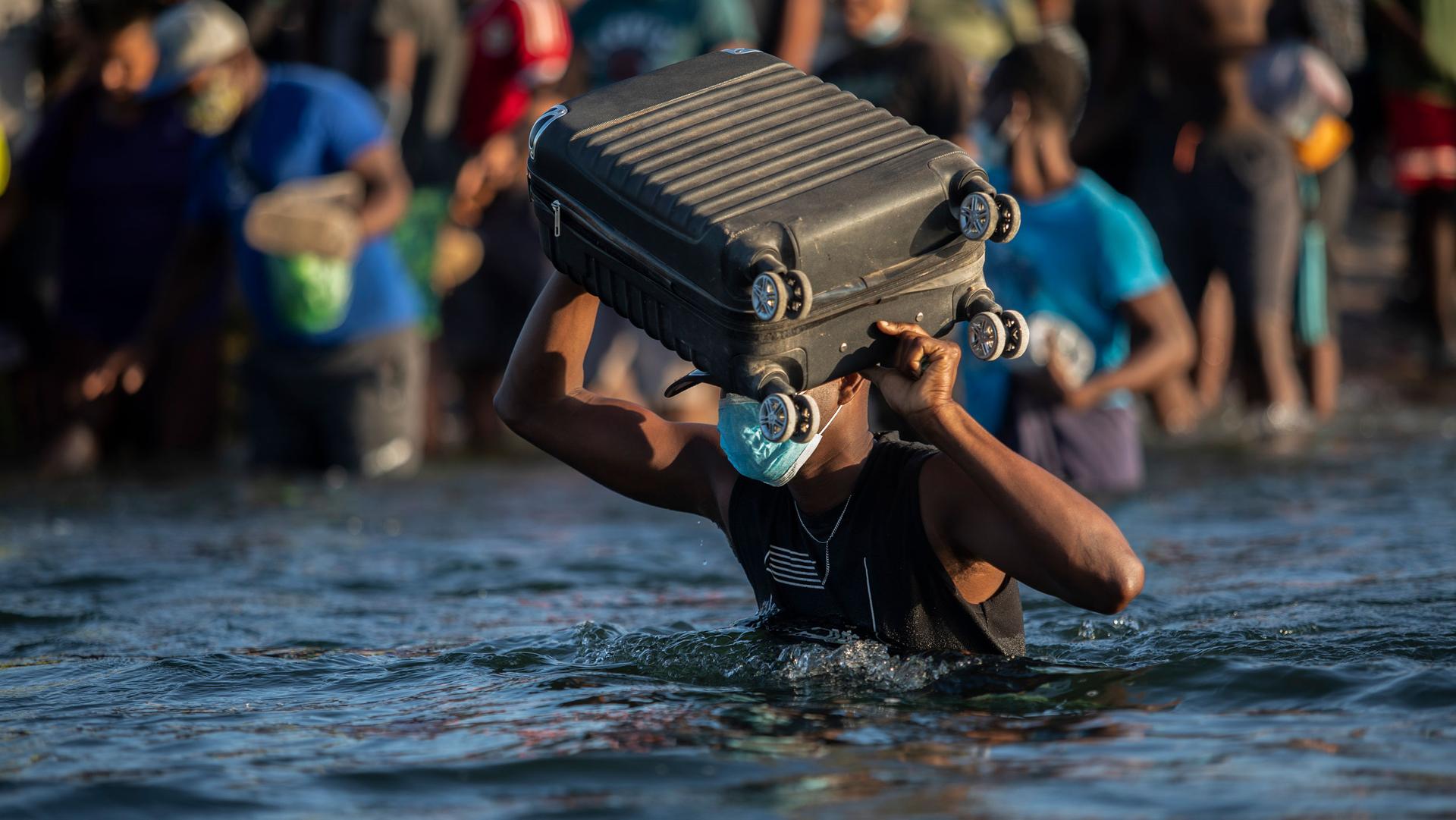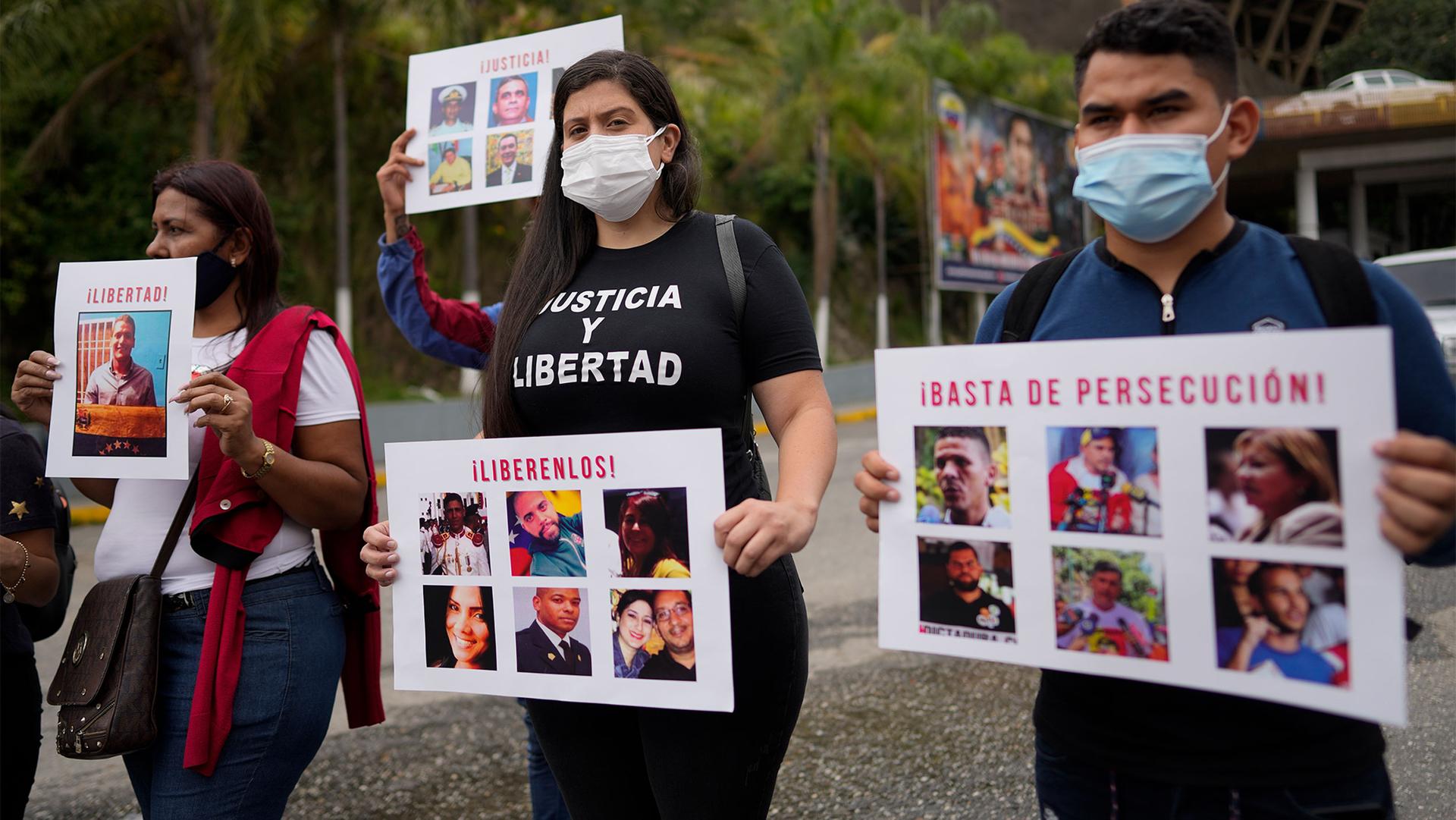ICC to open investigation over alleged crimes against humanity in Venezuela
Andreina Baduel wears a T-shirt that reads in Spanish “Justice and freedom” and holds a sign with pictures of people during a protest against political prisoners outside the Bolivarian National Intelligence Service, known as the Helicoide, in Caracas, Venezuela, Nov 3, 2021.
Top of The World — our morning news roundup written by editors at The World. Subscribe here.
Venezuela
On the final day of a trip to Caracas, International Criminal Court (ICC) chief prosecutor Karim Khan announced the ICC is set to open an investigation into allegded crimes of torture and extrajudicial killings by Venezuelan security forces under the rule of President Nicolas Maduro. While it could be years before any criminal charges are presented, the investigation was celebrated by human rights groups and the Venezuelan opposition. If carried out, the probe would be the first of its kind in a Latin American country.
United States
NSO Group, the Israeli company behind the controversial Pegasus spyware, which researchers say is used to target the phones of journalists, human rights activists and others, has been added to a US trade blacklist. Saying the NSO tools have been used to “conduct transnational repression,” the Biden administration announced measures that will limit the company’s access to US-made components and technology by requiring government permission for exports. NSO Group has long maintained that its military-grade spyware is sold to military, intelligence and security agencies from countries with good human rights records.
United Kingdom
Molnupiravir, the first antiviral oral pill found to be effective in treating symptomatic COVID-19, has been approved by a medicines regulator in the UK. Clinical trials show the medicine, developed by Merck and Ridgeback Biotherapeutics, cut the risk of death and hospitalization by half. The pill interferes with the replication of the virus and can be administered outside of a hospital.
From The World
A new memoir by Chinese artist Ai Weiwei honors his father’s poetry and politics

Chinese political dissident and artist Ai Weiwei has published a new book called “1000 Years of Joys and Sorrows.” He took the time to discuss with The World’s Carol Hills what it was like growing up as the son of a dissident poet.
Oil giant Saudi Arabia says it wants to get to net-zero emissions by 2060. But critics question its roadmap.

Saudi Arabia’s economy was built on oil. Now, faced with growing global pressure to replace fossil fuel with cleaner energy, the kingdom has announced plans to reach net-zero emissions by 2060.
It takes a village to run The World
We are powered by a group of talented and curious reporters, producers and editors who are dedicated to bringing you human-centered stories every day. We’re also buoyed by the community and financial support we receive from you, our listeners.
Make a gift before Nov. 30 to be a part of our fall drive and help us unlock a matching gift of $67,000.
When you donate today, you support reporting from our nonprofit newsroom.
Odd Spot
Talk about a couch potato! ?
A New Zealand couple made a surprise discovery while weeding their garden this summer: A 17-pound potato named “Doug,” which has now become a town celebrity. Colin and Donna Craig-Brown are trying to preserve the spud while waiting to hear back from Guinness World Records to see if it qualifies for the largest potato ever.
In case you missed it
Listen: Haitians deported from US focus again on migration

Less than two months ago, thousands of Haitians were encamped under a bridge in Del Rio, Texas, just at the Mexico border. Some migrants were eventually let into the US, but the majority were deported to Haiti, often after living away from the country for years. And in Afghanistan, Afghans desperately need foreign aid to get through the winter. But the international community doesn’t want to prop up the extremist Taliban government, which presents a moral dilemma. Plus, how many times over the past 19 months have you been asked, “How are you?” A lot. We hear how answers to that question get expressed around the world.
Don’t forget to subscribe to The World’s Latest Edition podcast using your favorite podcast player: RadioPublic, Apple Podcasts, Stitcher, Soundcloud, RSS.
